About
LGBT, short for lesbian, gay, bisexual, transgender and *q*ueer is an acronym used to refer to a loosely connected global community of non-heterosexual and non-cisgender people, as well as various supporters and organizations, who are actively involved in the advocacy of civil rights for the gender and sexual minorities. On the Internet and in the English-speaking media, the term has been used to describe the community of gender minorities, the social movement for the advancement of their civil rights and a wide range of political issues pertaining to gender equality, such as same-sex marriage, homophobia and discriminatory laws against members of the LGBT community.
History
Terminology
In the mid-to-late 1980s, the initialism LGB (lesbians, gays and bisexuals) became widely adopted as the preferred alternative to the terms “gay” and “homosexuals” to emphasize the growing diversity of sexual and gender minorities. By the early 1990s, its variation LGBT had emerged as the more inclusive term in recognition of the transgender community. As the LGBT social movement continued to gain momentum during the 1990s, several variations of LGBT were coined to represent other members of gender minorities, most notably LGBTQ, which includes those who identify as queer and/or “question” their sexual identity, and LGBTI, which includes intersexual, or people who are born with “sex characteristics that do not fit typical binary notions of male or female bodies.”
Indiana and Arkansas Religious Freedom Restoration Acts
Indiana and Arkansas Religious Freedom Restoration Acts (Indiana SB 101 and Arkansas SB 975) are two legislations passed in March 2015 by the state legislatures of Arkansas and Indiana. The bills became controversial due to the fact that they allow businesses and individuals to assert that their religion is a defense in discrimination lawsuits, exempting them from federal non-discrimination laws.

The United States Supreme Court: Obergefell v. Hodges
The U.S. Supreme Court Gay Marriage Ruling, formally known as Obergefell v. Hodges, was a landmark case reviewed by the United States Supreme Court in which the court determined that same-sex marriage is a fundamental right guaranteed by the Due Process Clause and the Equal Protection Clause of the Fourteenth Amendment to the United States Constitution. Upon its ruling on June 26th, 2015, the decision effectively legalized same-sex marriage across the country.

North Carolina’s Public Facilities Privacy & Security Act
On February 22nd, 2016, the city of Charlotte in North Carolina passed an ordinance prohibiting sexual orientation or preference-based discrimination in public accommodations, passenger vehicles for hire and city contractors. On March 23rd, the North Carolina State Legislature passed a bill to override non-discrimination laws that have been enacted at the municipal level, including a ban on using bathrooms of the gender not specifically written on their birth certificate. In the next few weeks, many companies, like IBM, Wells Fargo, Lowe’s, and American Airlines, issued statements publicly decrying the bill. Paypal cancelled plans to build an expansion in Charlotte, and 5 states plus the District of Columbia issued non-essential travel bans to the state. Bernie Sanders was the first 2016 presidential candidate to speak out against the law, saying that it “did not belong in America,” but he was followed by Hillary Clinton and other public figures, like Caitlyn Jenner.


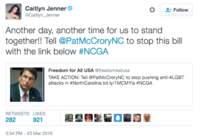
Other people reacted on Twitter in unique ways. One transgender man, James Sheffield, tweeted a selfie to the governor of North Carolina, Pat McCrory, showing his very male-looking appearance with the text, “It’s now the law for me to share a restroom with your wife,” which received 8,506 retweets and 9,025 likes. Comedian Cameron Esposito tweeted the sentence “You’ve already shared a bathroom with a trans person. You were fine,” which also went viral as an image macro.


Mississippi’s Religious Liberty Accommodations Act
On March 31st, 2016, Mississippi signed into law the House Bill 1523, which stated that people were lawfully allowed to deny service to customers based on their religious beliefs, including the belief that marriage is between a man and a woman, that “sexual relations are reserved for such a marriage,” and that gender is determined at birth. Jennifer Riley Collins, the executive director of the ACLU in Mississippi, said,
“This is a sad day for the state of Mississippi and for the thousands of Mississippians who can now be turned away from businesses, refused marriage licenses, denied housing, essential services and needed care based on who they are. This bill flies in the face of the basic American principles of fairness, justice and equality and will not protect anyone’s religious liberty. Far from protecting anyone from ‘government discrimination’ as the bill claims, it is an attack on the citizens of our state and it will serve as the Magnolia State’s badge of shame.”
Notable Episodes
Chick-Fil-A Gay Marriage Controversy
On January 4th, 2011, Metro Weekly published an article titled “Is Chick-fil-A restaurant against gay rights?”, which reported that the anti-gay marriage organization Pennsylvania Family Institute (PFI) listed American fast food restaurant chain "Chick-fil-A ":http://knowyourmeme.com/memes/events/chick-fil-a-gay-marriage-controversyas a co-sponsor of two marriage conferences. On January 6th, Chick-fil-A posted a statement on its official Facebook page, downplaying the company’s relationship with PFI by claiming it only provided sandwiches to the marriage seminars.

Oreo’s Gay Pride Cookie Controversy
On June 25th, 2012, a picture of an Oreo cookie with six layers of frosting in the colors of the rainbow flag was posted on Kraft Nabisco’s Facebook page.[1] The image was accompanied by the captions “June 25 | Pride” and “Proudly support love!” in recognition of LGBT Pride Month in the United States. The Facebook image post was instantly met by polarized opinions between supporters and critics of gay marriage, quickly escalating into a lengthy debate of more than 23,000 comments in the first 24 hours. As of December 11th, 2012, the Facebook post has accumulated more than 297,700 likes, 90,700 shares and 60,400 comments.

Gay Waitress Tipping Controversy
Gay Waitress Tipping Controversy refers to an online hoax involving an alleged case of discrimination toward Dayna Morales, a waitress at the Gallop Asian Bistro restaurant in Bridgewater, New Jersey, who claimed that she was denied a tip from a family she had served because of her sexual identity. However, shortly after the story spread across Facebook in late November 2013, the accused patrons stepped forward and debunked Morales’ claim with a bank statement supporting that they had actually tipped the server.

Phil Robertson’s Homophobic Remark Controversy
Phil Robertson’s Anti-Gay Comment, better known as The Duck Dynasty Controversy, refers to a controversial statement made by the star of the A&E reality TV series Duck Dynasty on the subject of homosexuality in a feature interview with GQ in December 2013.

Barilla’s Anti-Gay Remark Controversy
On September 26th, 2013, Guido Barilla, the chairman of the Italian food company Barilla Group, stated in an interview on the radio show La Zanzara that the company would not consider using gay couples in advertisements for their pasta brand because he does not agree with their lifestyles. He went on to emphasize the importance of what he considers a traditional family, stating “If gays like our pasta and our advertising, they will eat our pasta; if they don’t like that, they will eat someone else’s pasta.”


Pat Robertson’s “Gay AIDS Ring” Controversy
Pat Robertson’s Gay AIDS Ring refers to a video clip of the conservative Christian talk show host claiming that some in San Francisco’s gay community intentionally try to spread the HIV virus by cutting each other with special rings. The video saw a surge in popularity in late August 2013 after Robertson failed to have it removed from YouTube, resulting in the blowback phenomenon known as the Streisand effect.
“Kill The Faggot” Video Game Controversy
Kill The Faggot is a first-person shooter video game developed by Randall Herman that was submitted to Valve’s Steam Greenlight on May 4th, 2015. Upon its submission to Steam, the game immediately became a subject of controversy within online gaming communities due its blatantly homophobic nature.

Kim Davis Marriage License Controversy
Kim Davis is the county clerk of Rowan County, Kentucky, who became a controversial figure after refusing to issue licenses for same-sex marriages in compliance with the United States Supreme Court’s gay marriage ruling in June 2015. Following a period of deliberation in the federal court, Davis was held in contempt of court and jailed before her subordinates began issuing the licenses for same-sex couples on September 3rd.

Orlando Nightclub Shooting
Orlando Nightclub Shooting was a mass shooting carried out by a lone gunman at Pulse, a gay nightclub in Orlando, Florida, which resulted in the deaths of at least 49 patrons and wounded 53 others on June 12th, 2016. The killing spree has been classified by the authorities as an act of domestic terrorism carried out in allegiance to the Islamic State (IS), making it the deadliest mass shooting and hate crime against LGBT community in modern United States history, as well as the deadliest terrorist attack on American soil since the September 11 attacks in 2001.



Notable Topics
Same-Sex Marriage
Same-Sex Marriage refers to the ritually recognized union or legal contract between two people of the same sex. The legal recognition of same-sex marriages has been a long-running contested issue worldwide, with the first laws allowing its practice appearing in the mid-1990s.
Transgender Bathroom Debate
The Transgender Bathroom Debate refers to the controversial LGBT topic of discussion on whether transgender people should be legally entitled to access public bathrooms that correspond to their respective gender identities, rather than their biological sex.
Notable Activists
George Takei
George Takei an American author and actor known for playing the character Hikaru Sulu in the science fiction television series Star Trek and his strong online presence in advocacy of LGBT rights.

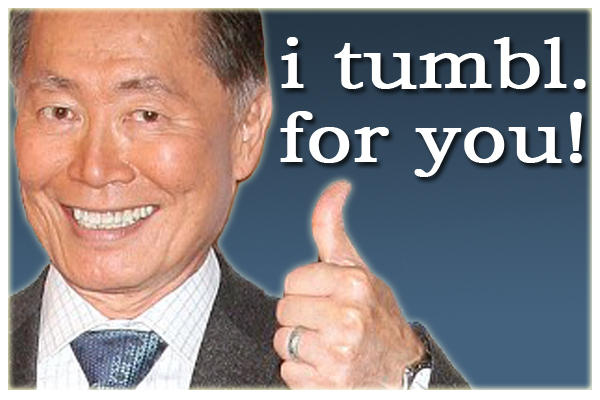
Neil Patrick Harris
Neil Patrick Harris is an American actor best known for portraying the title character in the ‘80s TV series Doogie Howser, M.D. and Barney Stinson in the 2000s sitcom How I Met Your Mother. Outside of his acting career in television and musicals, Harris has garnered a large following online for his active social media presence and advocacy of LGBT rights as an openly gay actor.



Dan Savage
Dan Savage is an American columnist and LGBT activist who is best known for launching the “It Gets Better” project and a public shaming campaign against the former Republican senator Rick Santorum by google-bombing his last name to redefine “Santorum” as a slang term for “byproduct of anal sex.”

Tyler Oakley
Tyler Oakley is an American vlogger and online activist best known for his advocacy for the LGBT community and humorous commentaries on popular culture and social media. He was also a member of the YouTube channel Five Awesome Gays[1] that ran from 2008 to 2011.

FCKH8
FCKH8 is an online store and activist organization promoting tolerance of the LGBTQ+ community. The group has garnered attention for its celebrity endorsements, as well as criticism for commercially exploiting the movement and blatantly pandering to young adults with provocative slogans.

Notable Campaigns
“Fuck You” Anti-Hate Collaboration
Fuck You Anti-hate Collaboration is a series of LGBT lipdub tributes to Lily Allen’s 2008 anti-hate single “Fuck You (Very Much).” Sung to cheerful, musical-type music, the song’s lyrics directly address racists and homophobes as generally small-minded and culturally unprincipled people. On May 4th, 2009, Australian YouTuber Steviebeebishop put a video called BIGFATGAYCOLLAB! online, which consisted of members of the international LGBT community lip dubbing to the song.
“It Gets Better” Project
It Gets Better Project is a social media campaign launched by American author and gay rights advocate Dan Savage in an effort to prevent suicide among LGBT youth by encouraging gay adults to spread the message that their lives will improve. Since its foundation in September 2010, the project has grown into an international movement with more than 50,000 video messages and 50 million views.
Red Equal Sign
Red Equal Sign is a banner image of an equality sign based on the official logo of The Human Rights Campaign (HRC), the largest LGBT equality-rights advocacy and lobbying group in the United States. In March 2013, more than 10 million Facebook and Twitter users replaced their profile avatars with the logo in support of same-sex marriage.
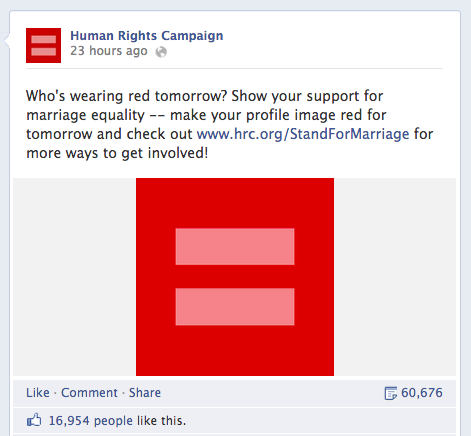
George Takei Calls Out Anti-Gay Arkansas School Board Member
George Takei Calls Out Anti-Gay Arkansas School Board Member is a viral video featuring a public service announcement message by George Takei, a Japanese American actor best known for his supporting role as “Hikaru Sulu” in the sci-fi TV series Star Trek and political activism in advocacy of Gay rights. The message is specifically addressed to Clint McCance, a Arkansas School Board member who posted a series of highly homophobic comments on his Facebook page in response to recent the school-wide LGBT rights campaign.

Audio (mp3 link):“You Are, A Douchebag!”
Daniel Pierce Coming Out Video
Daniel Pierce Coming Out Video refers to a video Daniel Pierce, a nineteen-year-old from Georgia, which was uploaded to YouTube and shows his father and stepmother abusing him after he told them he is gay. After the video went viral a crowdfunding campaign for Pierce’s living expenses gained over $100,000.
#WeJustNeedToPee
“We Just Need to Pee” is a hashtag campaign launched in protest of various laws aimed at preventing transgender people from entering bathrooms of genders not specified on their birth certificates.



#TransLawHelp
On November 9th, Twitter user @metasynthie[10] posted a message urging trans people to make sure to amend their identification documents, warning that their rights may be curtailed under Trump’s presidency and the Republican-controlled Congress (shown below). Over the following week, the tweet gained over 1,200 retweets and 700 likes.

That same day, Twitter user @dtwps[11] posted a tweet urging lawyers willing to help trans people with their documents to use the hashtag #TransLawHelp, which gathered more than 3,600 retweets and 3,200 likes within five days (shown below). That day, others began promoting the hashtag to assist members of the trans community.

In the coming days, the hashtags #TransLawHelp[12] and #TransCrowdFund[17] became widely used by members and advocates of LGBTQ equality to mobilize legal support and financial resources for the cause. In addition, at least two websites, Trans Relief Project[18] and TransLawHelp[19], were launched to connect volunteering attorneys with those who are in need of legal assistance in filing proper paperworks. The crowdsourced hashtag campaign was subsequently picked up by Fader,[13] Jezebel,[14] The Advocate[15] and BuzzFeed.[16]
Related Memes
“Santorum”
Santorum is a term that has been popularly defined as “byproduct of anal sex.” It was first conceived and coined by American columnist Dan Savage and his readers in an effort to publicly shame the former Republican senator Rick Santorum for the anti-gay remarks he made during an interview with the Associated Press in April 2003. The term still remains as the top result for Santorum’s name on several search engines, including Google, Bing and Yahoo, as of September 2011.

Coming Out Videos
Coming Out Videos are recordings of long-time closeted lesbian, gay, bisexual or transgender individuals openly disclosing their sexual orientation and/or gender identity to others for the first time.
Sassy Gay Friend
Sassy Gay Friend is a YouTube series created in 2010 by the online team of the Chicago-based improv company The Second City. The series starred actor Brian Gallivan as the titular character who visits famous characters from literature and film, as well as a handful of historical figures, to give them advice from the perspective of a over-the-top stereotypical homosexual male.
White CIS Male
White CIS Male is a term used by feminist and LGBTQ bloggers to refer to a hetersexual white man, oftentimes in a derogatory manner. The label was initially adopted by radical advocates of gender equality and the transgender community in the social justice blogosphere in discussing what they perceive as senses of entitlement among straight white men, but over time, it has been also appropriated by some male bloggers to mock social justice warriors and the rise of radicalism in gender identity politics.

Boyfriend Twins
Boyfriend Twins is a single topic blog dedicated to curating photographs of male couples who resemble each other as if they were brothers. Boyfriend Twins[1] was launched on April 6th, 2014 by a Tumblr user who wishes to remain anonymous. In an interview with BuzzFeed[2], the creator said he decided to start the blog after discussing the concept with a friend, initially dubbed “doppelbangers,” in order to “start a conversation about narcissism, exhibitionism and sexuality."
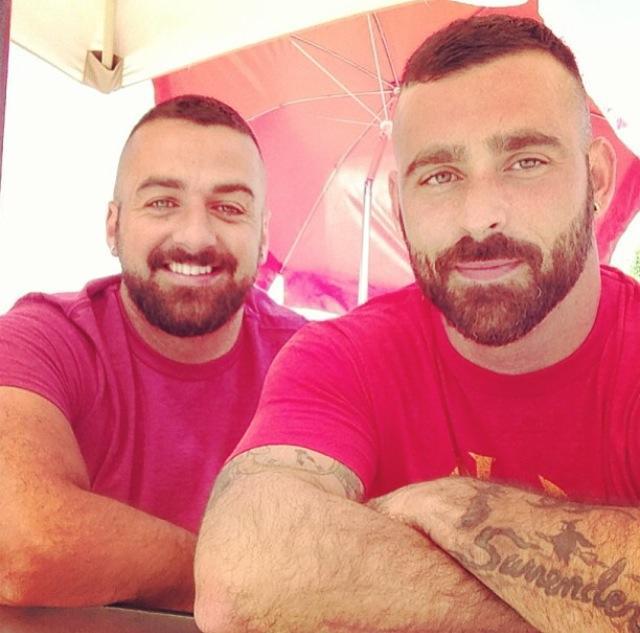
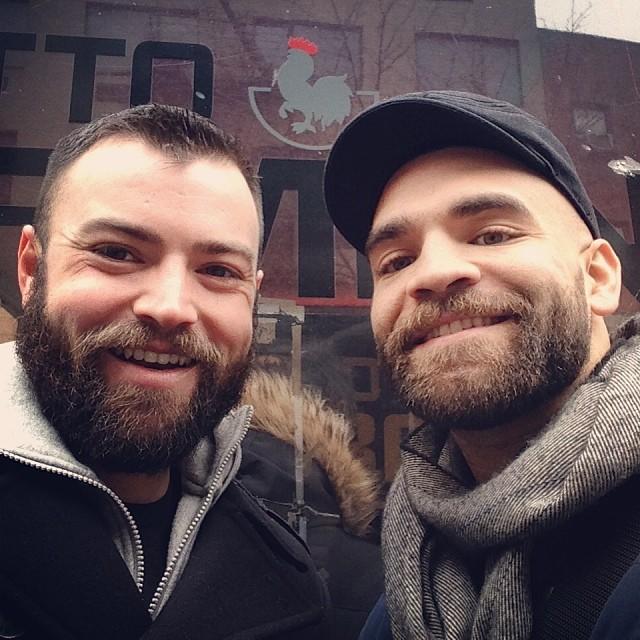

“Down With Cis”
“Down With Cis” is an ironic slogan used either to mock cisphobia (hostility towards people who are not transgender) or transphobia (prejudice against transsexuals) on Tumblr. In April 2015, the phrase initially gained traction among the critics of cisphobic culture and social justice blogosphere after an anecdote about a cisgender individual who was allegedly ambushed by a gang of people dressed in t-shirts with the slogan began circulating on Tumblr, though it soon became a target of ridicule as the authenticity of the story was brought into question from the transgender community on the microblogging platform.

“Die Cis Scum”
Die Cis Scum is catchphrase used by some members of the transgender community in protest of the oppression they feel by people who identify as cisgendered, or those whose identities match the sex they were assigned at birth. The phrase can be interpreted as a response to the death threats commonly received by members of the transgender community.

What’s In Your Pants?
What’s In Your Pants refers to a text manipulation meme where a person tries to figure out if another person is a boy or a girl, and gets unexpected answers.

#AskTheGays
#AskTheGays is a satirical hashtag launched by members and advocates of the LGBT community on Twitter in response to a gaffe uttered by 2016 Republican presidential candidate Donald Trump while discussing the Orlando nightclub shooting at a campaign rally in June 2016.

Gaymer
Gaymer, a portmanteau of the words “gay” and “gamer,” is an umbrella term for people who identify themselves as lesbian, gay, bisexual, transgender or queer (LGBTQ) within the video gaming community.

Search Interest
External References
[1]Tumblr – boyfriendtwin
[2]Buzzfeed – Selfies at Serious Places
[3]State of Mississippi – Mississippi House Bill 1523
[4]Wikipedia – Public Facilities Privacy & Security Act
[6]Wikipedia – LGBT Community
[7]Wikipedia – LGBT Social Movement
[8]Wikipedia – Timeline of LGBT History
[9]Wikipedia – Terminology of homosexuality
[10]Twitter – @metasynthie
[12]Twitter – #TransLawHelp
[13]Fader – The Hashtag #TransLawHelp Is Flagging Free Legal Services For The Trans Community
[14]The Advocate – Lawyers Offer Free #TransLawHelp for ID Changes
[15]BuzzFeed – Transgender People Are Connecting With Lawyers On Twitter Using #TransLawHelp
[16]Jezebel – A Trans Rights Attorney on #TransLawHelp
[17]Twitter – #TransCrowdFund
[18]TransRelief.com – Trans Relief Project
[19]TransLawHelp.org – Trans Law Help Website